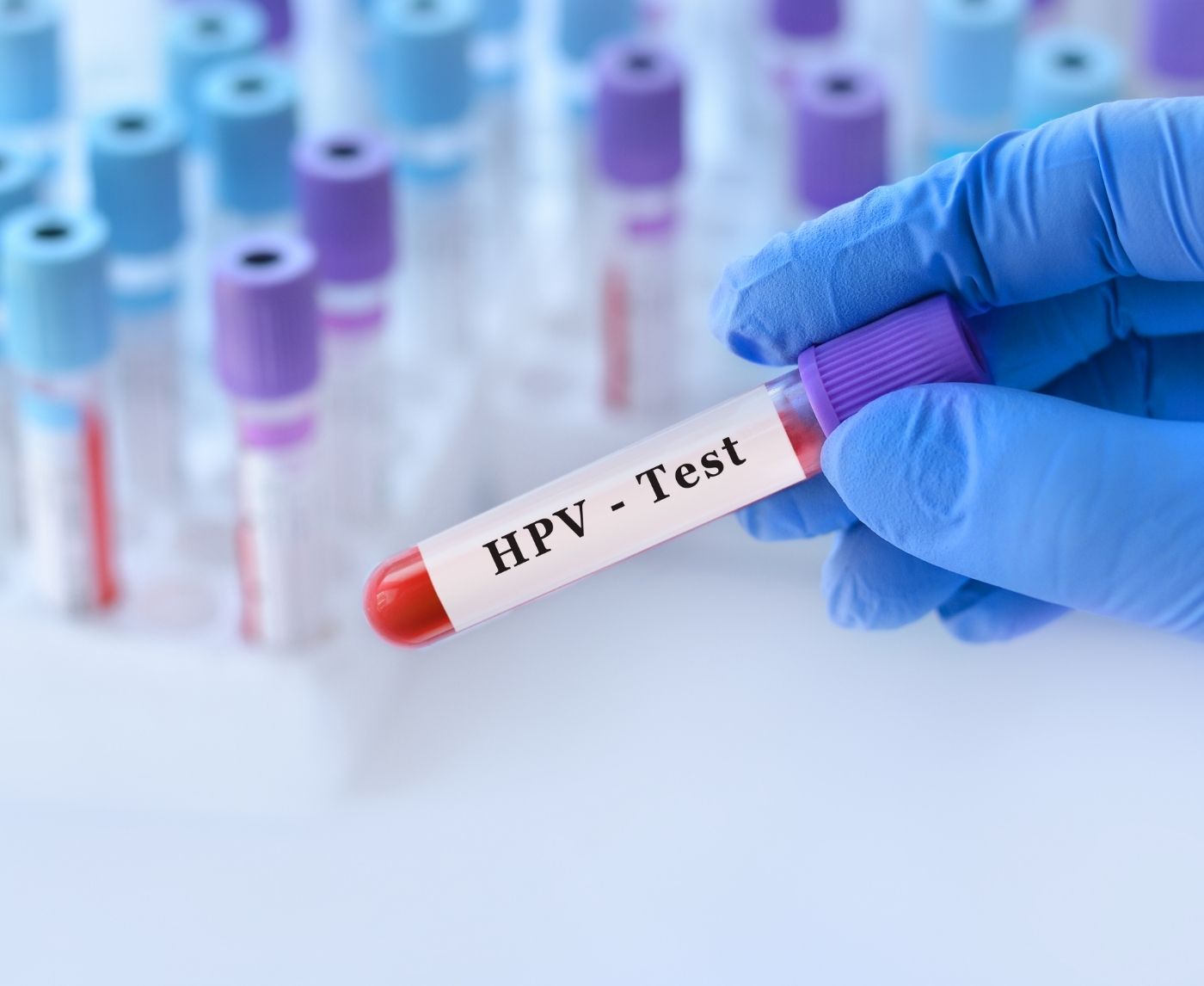Can You Have an Anal STD With No Symptoms?
The STD Epidemic Exposed: What's Driving the Increase?
It's not your imagination. The Centers for Disease Control and Prevention (CDC) is reporting that the U.S. has experienced over 2.5 million cases of chlamydia, gonorrhea, and syphilis in each of the recent years. The COVID-19 pandemic interrupted testing and reporting, but the trend has not slowed. If anything, it's accelerated.
So why is STD incidence increasing?
Reduction in Public Health Expenditure
A major contributor is the breakdown of public health programs. Budget cuts have caused many STD clinics to cut back their hours or close altogether. With reduced services, fewer people get tested—and fewer infections get caught early.
Hookup Culture & Dating Apps
Let's be real—dating apps have changed the game of how we meet, and not always for the better. With more brief, sometimes anonymous encounters on the rise, regular testing hasn't always kept pace with behavior.
"I was casually dating, and I just didn't think I was at risk. But I hadn't been tested in more than a year, and I got gonorrhea and had no symptoms," says Eric, 26, of Chicago.

Lack of Sex Education
Insufficient or out-of-date sex education leaves most young adults uninformed about STDs being transmitted and about the importance of routine, preventive testing. Some don't even know that it's possible to be infected and contagious without having symptoms.
Stigma Surrounding Testing
Fear and shame continue to prevent many from getting tested. They believe that only "promiscuous" individuals acquire STDs, and that is simply not true. Any sexually active individual is at risk.
The Secret Benefits of Being Tested and Informed
Though the statistics are daunting, here's the upside: more individuals are discussing STDs today than ever. With open dialogue comes greater awareness—and greater means of protecting yourself.
Early Detection Saves Lives
The majority of STDs are treatable, and some are even curable. But the catch is diagnosing them early. If left untreated, STDs can cause long-term problems such as infertility, pelvic inflammatory disease, and a heightened risk of HIV.
Peace of Mind
Getting tested—even if you’re scared of the results—often brings relief and control. Knowing your status helps you make smarter decisions about your body and relationships.
Order Now $149.00 $392.00 Check Your STD Status in Minutes
Test at Home with Remedium
8-in-1 STD Test Kit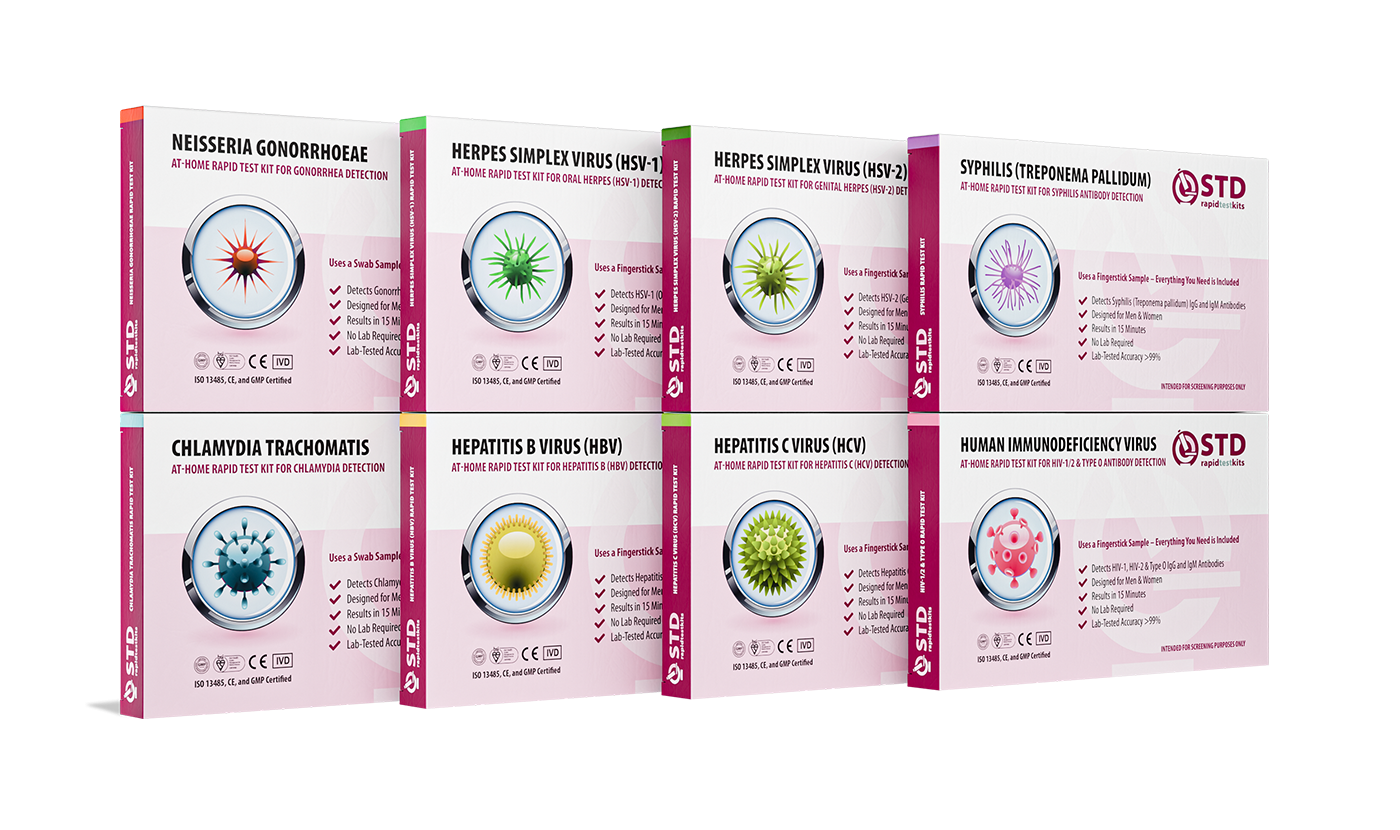




For all 8 tests
Closer Ties
Speaking honestly about testing and protection with your partner builds trust, communication, and respect for one another. A Reddit user described:
My boyfriend was anxious when I informed him, but after we both got tested, it made us closer. We knew we had each other's backs.
Home Testing = Complete Convenience
No waiting rooms, no judgmental looks. Home STD testing kits are accurate from the privacy of your own home. For many, they've eliminated the greatest obstacle: embarrassment.
Contributing to Public Health
Testing is not only good for you. Testing prevents the spread of disease. When infections are detected early, they're less likely to be transmitted to others—you're keeping your community safe, as well.
What's in the Way? Challenges to STD Prevention
Yet despite how empowering testing and awareness can be, the path to improved sexual health is paved with challenges.
Limited Access to Care
There may be no access at all to test sites in rural areas. In urban areas, poor people often have a hard time locating free or low-cost services.
Increased Antibiotic Resistance
Super gonorrhea" is real. According to the WHO, antibiotic-resistant forms of gonorrhea are developing, which are resistant to certain drugs. It's a serious reminder of why it's so important to catch it early.
Asymptomatic Transmission
About 70% of chlamydia infections in women and 50% of men have no symptoms. Most are unaware they are infecting their partners, believing nothing is wrong.
Cultural and Religious Barriers
Among certain groups, cultural taboo or religious beliefs cause hesitation even to discuss sex, much less testing or condom use. The silence is driving the STD outbreaks.
Myths and Disinformation
From TikTok challenges to misinformation groups, STD myths get around online. Some think you can only get an STD from penetration, or that oral sex is completely safe—both harmfully untrue.
Real Solutions: How to Take Control of Your Sexual Health
Okay, so STDs are on the rise—but that doesn't have to leave you helpless. Whether you're dating casually, in a monogamous relationship, or simply not sexually active right now, there are easy, achievable things you can do.
Standardize Routine Testing
Get the STD tests as routine as your check-up or visit to the dentist. If you're sexually active, especially with multiple partners, every 3–6 months is the intelligent thing to do.
- Set reminders on your calendar
- Choose home STD testing kits for convenience and privacy
- Organize a test with your general practitioner or a nearby clinic
Order Now $189.00 $490.00 Check Your STD Status in Minutes
Test at Home with Remedium
10-in-1 STD Test Kit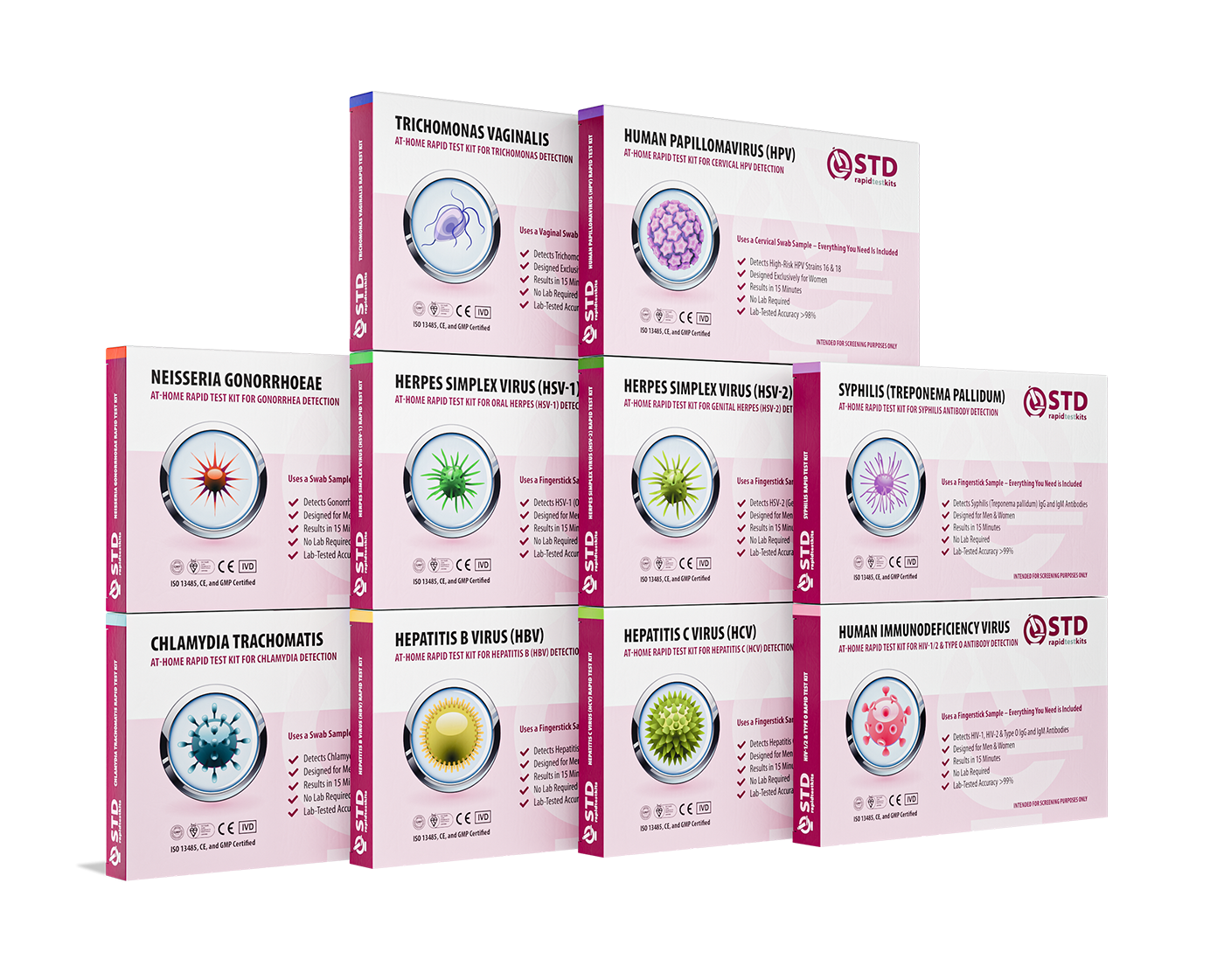




For all 10 tests
Have the Conversation—Yes, That One
Talking about STDs with a new partner is not sexy, but it is necessary. Try saying something like:
"Before we proceed, I believe it's essential we're both on the same page regarding testing and protection. I got tested last month—how about you?"
Most will appreciate honesty and be more inclined to do likewise.
Practice Protection Daily
Dental dams and condoms are effective. Are they foolproof? No. But they greatly lower risk if used properly. Pair barrier methods with regular testing and communication for optimal protection.
Educate Yourself (and Others)
Follow trusted sources such as CDC, Planned Parenthood, or your local health department. And if you notice a friend posting STD misinformation—correct it gently.
Investigate Pre-Exposure Prophylaxis (PrEP)
For those at high risk of HIV, PrEP is an extremely effective daily pill that reduces your chance of infection. It won't protect you against other STDs, but it's a valuable addition to the prevention arsenal.
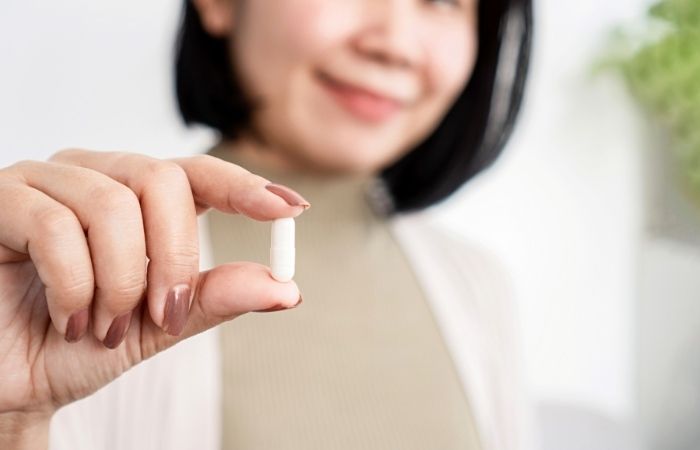
Numbers Don't Lie: What the Data Tells Us
To understand how serious the issue is, here are some sobering stats:
- Chlamydia is still the most reported STD in the United States, with more than 1.6 million cases every year based on CDC 2023 statistics.
- Gonorrhea has more than doubled since 2009. In certain urban groups, it's near antibiotic resistance, which will make it more difficult to treat.
- Syphilis, once thought all but eradicated in the U.S., has seen an alarming comeback—congenital syphilis (passed from mother to child) increasing by over 200% in the past five years.
- Among LGBTQ+ youth, STDs are disproportionately high. In a 2023 study in The Lancet, young gay and bisexual men are responsible for almost 40% of new cases of gonorrhea.
These statistics are not intended to frighten you—they are intended to inspire action. Testing, treatment, and education are our strongest weapons.
Experts and Case Studies: What the Professionals Say
We spoke with several experts and looked at medical research to discover what's being accomplished—and what remains to be done.
"One of the largest problems is that STDs usually don't hurt or have symptoms that you can see. People think they're okay, so they won't get tested," according to Dr. Karen Liu, a public health doctor in California.
"We have to make testing a normal part of being sexually active—like birth control or STI prevention."
Dr. Liu also added that mail-order test kits and telemedicine have significantly enhanced access.
A pilot program in New York that provided free at-home STD test kits to youth resulted in a 25% rise in early diagnoses—demonstrating that eliminating shame and inconvenience is effective.
Another Atlanta project concentrated on church and cultural center-based learning within the community. The outcome? More than 60% of the participants had not been tested in more than a year.
"I always figured STDs were something that happened to other people," Alicia, 33, recalls being told when she discovered she had chlamydia at a community clinic.
"But once I got treated and realized how simple it was, I knew how foolish it was that I had waited."
Check Your STD Status in Minutes
Test at Home with Remedium10-in-1 STD Test Kit

 For Women
For Women Results in Minutes
Results in Minutes No Lab Needed
No Lab Needed Private & Discreet
Private & DiscreetOrder Now $189.00 $490.00
For all 10 tests
Looking Back: A Brief History of STD Trends
Sexually transmitted diseases are not novel. Indeed, the fight against them is as ancient as civilization.
Syphilis and gonorrhea were the focus of the public health agenda in the early 20th century, with whole government campaigns being devoted to testing and treatment of soldiers. Treatment was changed forever with the advent of penicillin, and many thought that we had "beaten" STDs.
But complacency took hold. By the 1980s, the advent of HIV/AIDS transformed all this—public discussion of sex was once again full of fear, but it also galvanized life-saving research and activism.
As treatment got better, fear disappeared. Throw in internet dating and poorly funded public health campaigns, and the groundwork was laid for today's increasing STD rates.
The lesson? We've been here before—and we know how to respond.
The Future of STD Prevention: Where Are We Going?
We're not behind the times. Actually, the future of STD prevention has never been more promising—if we embrace innovation, accessibility, and education.
Home Testing Will Become the Norm
Mail-in and rapid test kits are already becoming more popular. Groups like STD Rapid Test Kits and city health departments are expanding discreet, affordable testing kits delivered to your door. Within a few years, this may be the norm for frequent testing.
Telehealth Services Are Expanding
Post-pandemic, virtual consultations are now provided by many clinics and practitioners. This means that being tested and treated may not even necessitate going out of your house.

AI-Powered Risk Assessment Tools
A few digital health companies already offer chat-based sexual health testing, making it easy for individuals to learn which STDs they ought to be tested for based on behavior—not a guessing game.
A New Attempt at Comprehensive Sex Ed
A number of states are reconsidering their public school policies after a study revealed that comprehensive sex education reduces teen pregnancy and STDs. The idea is to create a smarter and safer generation.
Vaccines Beyond HPV
The vaccine for HPV was a breakthrough in STD prevention. Scientists are already working on future vaccines for herpes, chlamydia, and even HIV. It's not science fiction—it's being developed right now in laboratories across the globe.
Putting Knowledge into Action: How to Implement This in Everyday Life
So what does it all mean to you? Reading stories like this alone will not suffice. Taking small, daily action will guard your own welfare and keep those around you.
Here's how to start applying what you've learnt:
- Schedule Your Next STD Screening – Either with a clinic or at-home kit, make it part of your self-care.
- Use Protection Every Time – Even if you trust your partner, protection gives a level of protection to both of you.
- Have Open Conversations – Normalize asking about testing and status before getting physical.
- Be a Resource – Share information. Introduce a friend to this article. Recommend a clinic. Offer to test together.
- Stay Informed – Follow reputable sources like the CDC, Mayo Clinic, and WHO. If something sounds suspicious, fact-check it.
STD prevention is a lifelong task—but one you can manage, if you're proactive.
Order Now $49.00 $98.00 Check Your STD Status in Minutes
Test at Home with Remedium
Hepatitis B & Hepatitis C Test Kit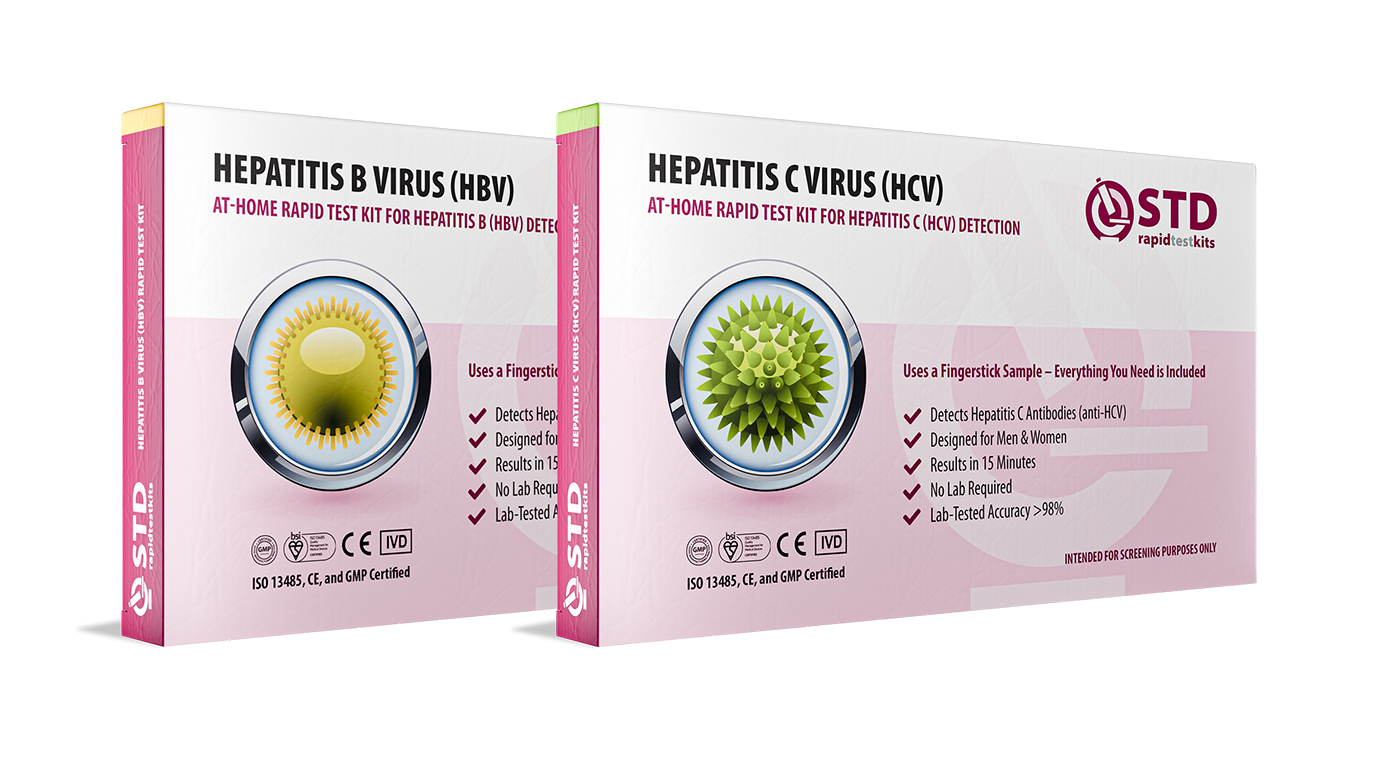




For all 2 tests
How Rising STD Rates Are Redefining Industries
This is not a matter of public health itself—it's occurring to whole industries as we speak.
Healthcare & Diagnostics
Pharmacies, telemedicine companies, and test kit makers are scrambling to keep up with demand. The market for STD testing is projected to surpass $11 billion by 2030, market researchers predict.
Pharmaceutical Industry
New vaccines and antibiotics are being developed, particularly to fight antibiotic-resistant gonorrhea, which is an emerging threat.
Education & Nonprofits
Sexual health non-profits are redoubling efforts to serve underserved communities, including Black, Latino, and LGBTQ+ populations who experience disproportionate STD burdens.
Tech & App Development
Even dating applications are joining the fray. Tinder, Grindr, and others have begun incorporating sexual health awareness reminders, links to testing centers, and reminders to test between partners.
Policy & Insurance
Insurance companies are now covering more at-home STD testing and prevention. Meanwhile, states are debating laws for assured access to testing in schools and the workplace.

Stories That Hit Home: Personal Experiences with STDs
There is nothing as powerful as a personal story. These are not numbers—these are facts that this impacts real individuals on a daily basis.
Tasha, age 29
"I didn't have any symptoms. I only got tested because my friend was. Turned out I had chlamydia. One round of antibiotics and it was gone. But if I hadn't known, who knows what damage it could've done?"
Devon, age 22
"I was embarrassed to buy condoms or to ask to be tested. But then I thought—what's worse? That, or infecting someone?
Luis, age 34
"Being a gay man, I felt like I needed to keep my testing on the down low. But I've turned it into a habit now. I now ask my partners to test with me. It's actually a kind of bonding."
Maya, 19
"I contracted HPV in high school and thought my life was over. But now I know it's actually really normal, and treatable. I speak openly about it now so that I can encourage other girls not to be embarrassed."
These stories are a reminder: you're not by yourself, and you're more than your diagnosis.
Check Your STD Status in Minutes
Test at Home with RemediumPapillomavirus (HPV) Test
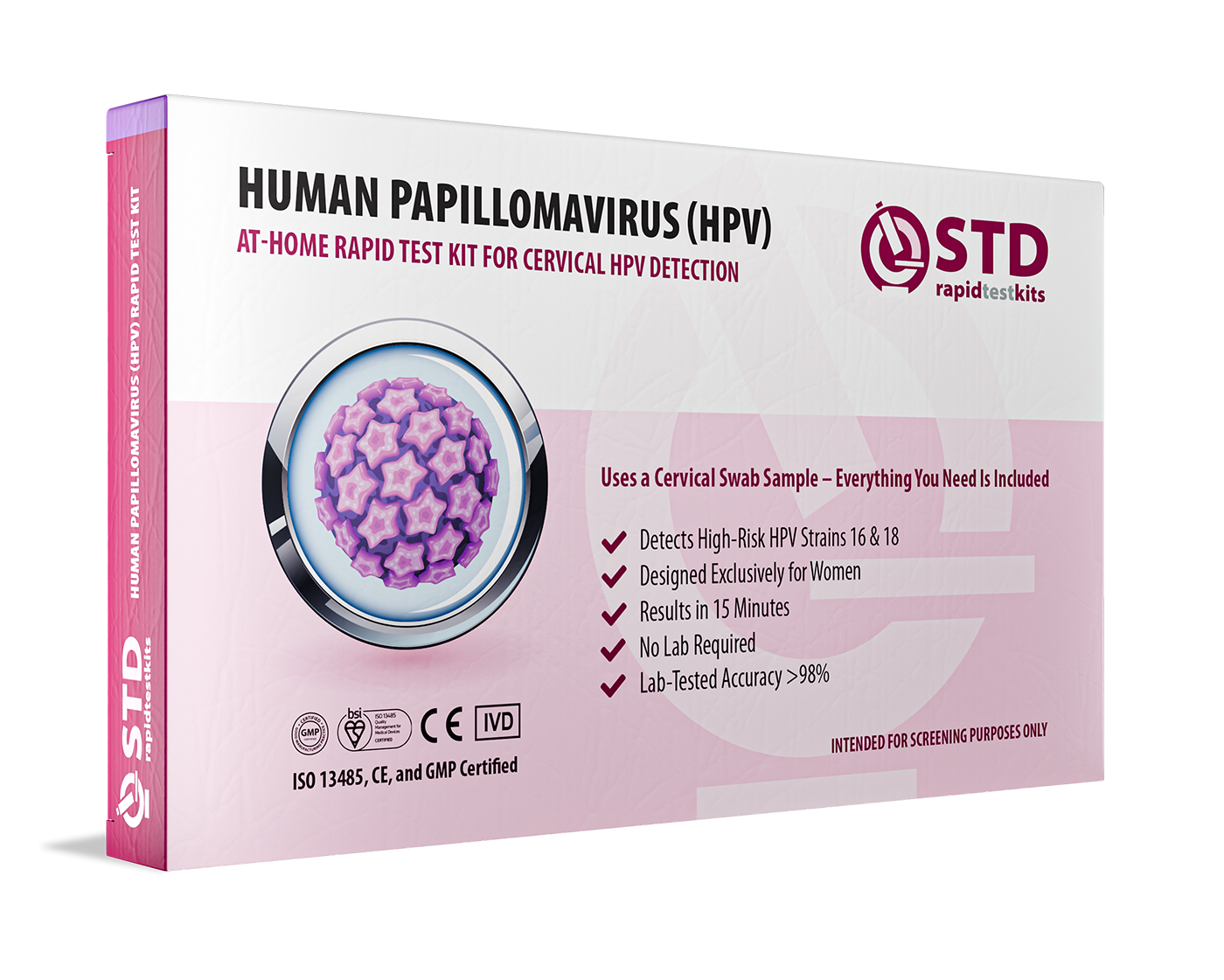
 For Women
For Women Results in Minutes
Results in Minutes No Lab Needed
No Lab Needed Private & Discreet
Private & DiscreetOrder Now $33.99 $49.00
Busting the Myths: 5 Common Misconceptions About STDs
- Myth 1: You will always know if you have an STD
- False. Most STDs have no symptoms—so you can have one and be unaware for months, even years.
- Myth 2: Only people who have "a lot of partners" get STDs
- Nope. Anybody who's sexually active is at risk—even in monogamous relationships.
- Myth 3: You cannot get STDs from oral or anal sex
- You can. The other three, gonorrhea, chlamydia, and herpes, are all contagious in this manner.
- Myth 4: Condoms prevent all STDs
- They greatly minimize risk but do not guard against infections such as HPV or herpes transmitted through skin-to-skin contact.
- Myth 5: Home STD testing is not accurate
- False. There are numerous home tests that are laboratory-confirmed and very accurate, especially for chlamydia, gonorrhea, and HIV.
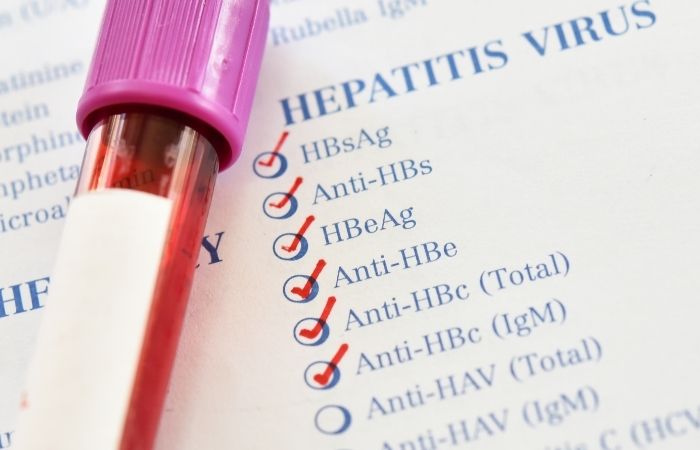
FAQs
1.- If we have more medicine and knowledge today, why are STDs on the rise?
There are many contributing factors, such as fewer funds for clinics, testing stigma, misinformation, dating apps, and asymptomatic carriers.
2.- How frequently should I be tested?
If you're sexually active, particularly with new or more than one partner, try to get tested every 3 to 6 months. Even once a year is better than never.
3.- Are home STD test kits accurate?
Yes. The majority of in-home kits are FDA-approved or laboratory-certified for precision. Utilize them carefully with instructions for optimal results.
4.- What are the most prevalent STDs today?
Chlamydia, gonorrhea, and syphilis lead the way. HPV is also extremely common but not necessarily monitored in the same manner because of vaccination campaigns.
5.- Can a person get an STD without sexual contact?
Yes. STDs like herpes, HPV, and syphilis can spread through skin-to-skin contact, oral sex, and even sharing toys without proper cleaning.
6.- What if my partner won't get tested?
That's a red flag. Your health is important. You deserve to wait until you're both on the same page about testing.
7.- I don't have any symptoms—do I still need to get tested?
Yes. Symptoms of most STDs do not appear for weeks, months, or years. The most harmful are silent infections.
8.- Can I be treated if I am found positive?
Yes. All the most common STDs are curable using antibiotics or antiviral medication. The sooner you diagnose it, the more easily it can be treated.
9.- What occurs if an STD is not treated?
It varies with the infection, but the symptoms can range from infertility, chronic pain, increased HIV risk, or even organ damage.
10.- Where can I get tested anonymously?
City or county health departments, Planned Parenthood health centers, and internet test kit sellers usually provide anonymous or confidential testing.
Taking Control of Your Health: What You Can Do Beginning Today
Let's get real—STD rates are on the rise. That's a fact. But the greater fact is this: You are not helpless. You don't need to be an activist or a public health professional to make a genuine impact.
- Guarding yourself—and others—begins with some basic, mindful steps:
- Get tested every now and then, particularly when beginning a new relationship or if you've had unprotected sex.
- Think at-home STD test kits for private, at-your-own-convenience access to your results—no waiting room, no stigma.
- Discuss sexual health, testing history, and boundaries with your partner(s). It's uncomfortable for a moment but liberating in the long term.
- Have safe sex, and understand that condoms and dental dams are still necessary—even in 2025.
- Pass it on. Tell your friends. Share that article.
- Debunk dangerous myths. The more we discuss STDs, the less frightening they are—and the more we can test, treat, and prevent them together.
So the next time you hear the "STDs are on the rise" story, you'll know exactly why—and more importantly, what to do about it.
Sources
1.- Are Home STD Tests Accurate? - STDWatch
2.- At-Home STD Tests: What You Need to Know - Healthline
3.- Can I Take an STD Test at Home? - Planned Parenthood
4.- Understanding Accuracy: How Reliable Are At-Home STD Test Kits? - STD Rapid Test Kits






